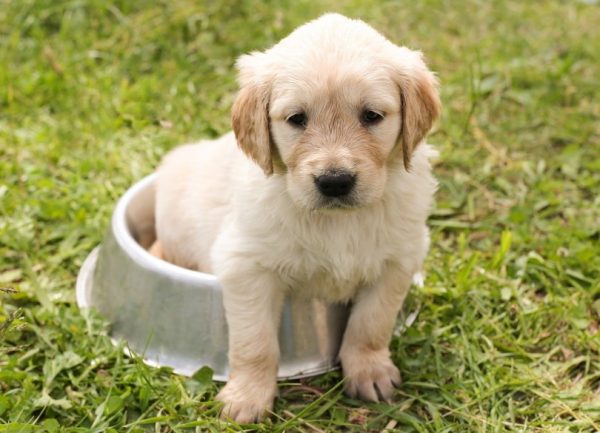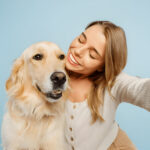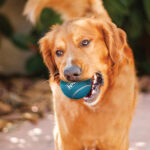
Bringing home a Golden Retriever puppy is an exciting and heartwarming experience. These loyal and intelligent dogs quickly become beloved members of the family. However, the first year is crucial for their development and requires careful attention to various milestones and challenges. This guide will walk you through what to expect in your Golden Retriever’s first year, offering valuable tips and insights to ensure a happy, healthy start.
Key Milestones in the First Year
First Vet Visit and Vaccinations (6-8 Weeks)
Your puppy’s first vet visit is essential for setting the stage for their health. At 6-8 weeks, your vet will perform a thorough health check and administer the initial round of vaccinations. These vaccinations protect against common canine diseases like parvovirus, distemper, and hepatitis. Your vet will also discuss a vaccination schedule and preventive care measures, including deworming and flea control.
Growth and Development Benchmarks
- 3 Months:
- Rapid growth phase.
- Beginning of teething.
- Increased curiosity and playfulness.
- 6 Months:
- Heightened energy levels.
- Continued teething; introduction of permanent teeth.
- Growth spurts may begin to slow.
- 9 Months:
- Near-adult size.
- Puberty onset; potential behavioral changes.
- Increased interest in social interactions.
Basic Obedience Training (8-10 Weeks)
Start training your Golden Retriever puppy early. Basic commands like “sit,” “stay,” and “come” should be introduced at 8-10 weeks. Consistency is key. Use positive reinforcement techniques such as treats and praise to encourage good behavior. Training sessions should be short and engaging, lasting no more than 5-10 minutes each to keep your puppy’s attention.
Transition to Adult Dog Food (12 Months)
At around 12 months, your Golden Retriever will be ready to transition from puppy food to adult dog food. This change is important as adult dog food provides the right balance of nutrients needed for maintaining a healthy weight and overall well-being. Consult your vet for recommendations on the best food for your growing pup.
Socialization Milestones
Socialization is critical for a well-adjusted puppy. Start exposing your puppy to different environments, people, and other dogs from 8 weeks onward. Positive socialization experiences help prevent fear-based behaviors and promote confidence.
Introduction to Grooming Practices (3 Months)
Golden Retrievers have a thick double coat that requires regular grooming. Start with brushing and nail trimming at around 3 months. This will help your puppy get used to the grooming routine. Regular grooming keeps their coat healthy and reduces shedding.
Teething and Appropriate Chew Toy Introduction (4-6 Months)
Teething can be a challenging phase for both you and your puppy. At 4-6 months, your puppy will begin to lose their baby teeth and grow adult teeth. Provide appropriate chew toys to soothe their gums and prevent destructive chewing behaviors.
Housebreaking Success
Housebreaking is one of the first challenges new puppy owners face. Establish a consistent potty training routine and be patient. Positive reinforcement is effective here as well—reward your puppy for going outside. Accidents will happen, but consistency and patience are key.
Common Challenges in the First Year
Navigating the Teething Phase
Teething can be uncomfortable for your puppy and frustrating for you. Provide plenty of chew toys and keep valuables out of reach. Redirect inappropriate chewing to suitable toys and be patient.
Housebreaking
Potty training requires consistency and patience. Establish a regular schedule for bathroom breaks and reward your puppy for successful outings. Avoid punishment for accidents, as it can create fear and confusion.
Socialization Difficulties
Ensure your puppy is exposed to various environments, people, and animals. Socialization helps prevent fear-based behaviors and promotes a well-adjusted adult dog.
Finding the Right Balance of Exercise and Rest
Golden Retrievers are energetic dogs, but puppies need a balance of exercise and rest. Over-exercising can harm their developing joints. Short, frequent play sessions are ideal.
Basic Obedience Training
Training a puppy requires time and patience. Use positive reinforcement and be consistent with commands. Break training into short, fun sessions to keep your puppy engaged.
Coping with High Energy Levels
Golden Retriever puppies have high energy levels and may exhibit destructive behaviors if not properly stimulated. Provide plenty of physical exercise and mental enrichment to keep them occupied.
Introduction to Grooming Routines
Regular grooming is essential for a Golden Retriever’s coat health. Start early with brushing and nail trimming to get your puppy used to the routine.
Adapting to the Cost and Time Commitment
Raising a Golden Retriever puppy requires a significant investment of time and money. From vet visits to training and grooming, be prepared for the commitment.
Training Tips and Techniques
- Positive Reinforcement:
Use treats and praise to reward good behavior. Positive reinforcement encourages your puppy to repeat desirable actions.
- Early and Consistent Training:
Start training as soon as you bring your puppy home. Consistency with commands and routines helps your puppy understand expectations.
- Short, Frequent Training Sessions:
Puppies have short attention spans, so keep training sessions brief and frequent to maintain engagement.
- Focus on Socialization:
Expose your puppy to a variety of people, animals, and environments from day one. Positive socialization experiences are crucial for their development.
- Incorporate Play into Training:
Make training fun by incorporating play. This builds a strong bond with your puppy and keeps them motivated.
- Seek Professional Guidance:
Consider enrolling in puppy training classes or seeking professional guidance to ensure effective training methods.
- Patience and Understanding:
Remember that puppies are learning and need time to understand commands. Be patient and understanding throughout the training process.
Conclusion
The first year with your Golden Retriever puppy is filled with joy, challenges, and countless memorable moments. By understanding and addressing key milestones and common challenges, you can ensure a happy, healthy start for your new furry friend. Remember to use positive reinforcement in training, stay consistent with routines, and provide plenty of love and socialization.
If you need additional support, consider booking a call with one of our expert trainers. They can help you refine your training techniques and provide personalized guidance for raising a well-adjusted, happy Golden Retriever.
FAQs
1. When should I start training my Golden Retriever puppy?
You should start training your Golden Retriever puppy as soon as you bring them home, typically at 8-10 weeks. Early training helps establish good behavior and routines.
2. How do I handle my puppy’s teething phase?
Provide plenty of appropriate chew toys to soothe your puppy’s gums during teething. Redirect inappropriate chewing to these toys and be patient.
3. How often should I groom my Golden Retriever puppy?
Start grooming your Golden Retriever puppy at around 3 months. Brush their coat regularly to prevent matting and reduce shedding. Trim their nails as needed.
4. What is the best way to socialize my Golden Retriever puppy?
Expose your puppy to a variety of people, animals, and environments from a young age. Positive socialization experiences help prevent fear-based behaviors.
5. How do I transition my Golden Retriever from puppy food to adult dog food?
Transition your Golden Retriever to adult dog food at around 12 months. Consult your vet for recommendations on the best food for your dog’s specific needs.








